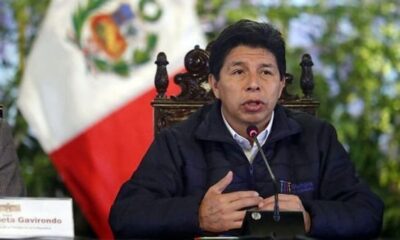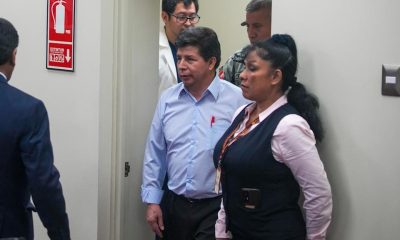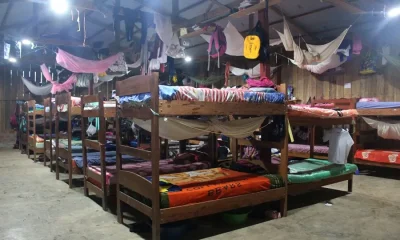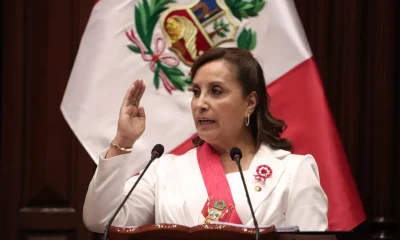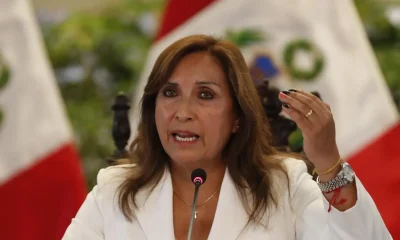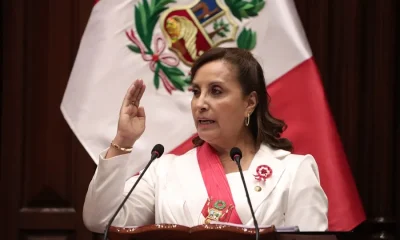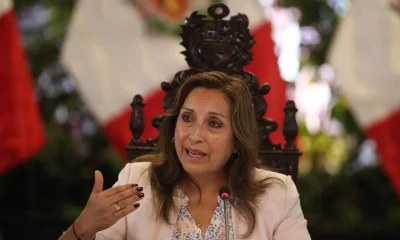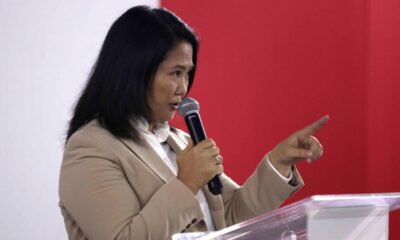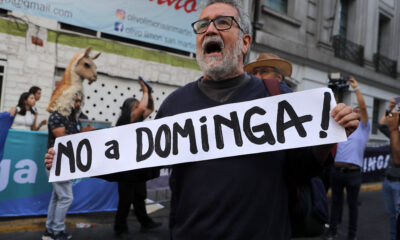International
Health or jobs: Peruvian mining town at a crossroads
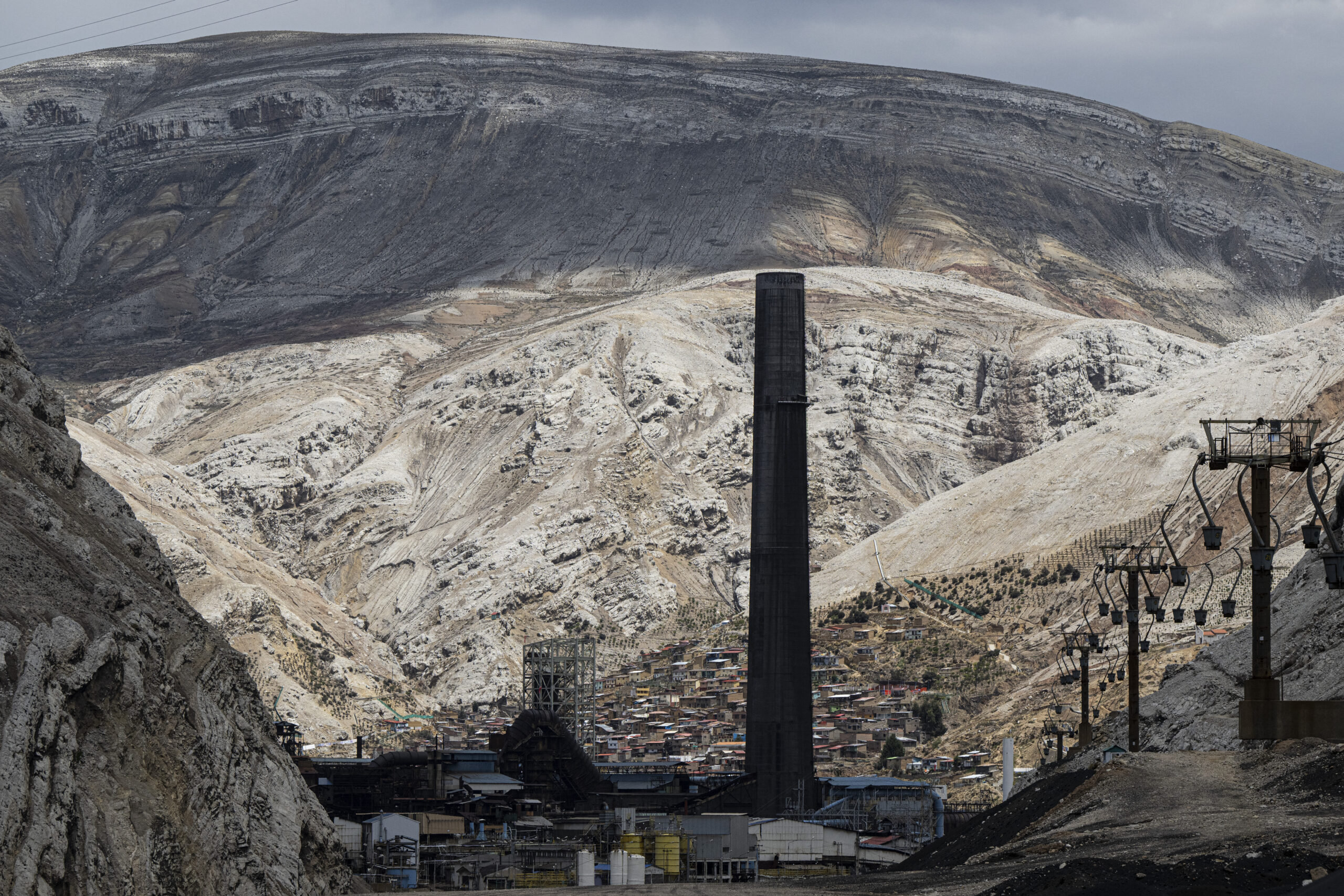
| By AFP | Carlos Mandujano |
The Peruvian mining city of La Oroya, one of the most polluted places in the world, is seeking to reopen a heavy metal smelter that poisoned residents for almost a century.
The Andean city, situated in a high-altitude valley at 3 750 meters (12 300 feet), is a grey, desolate place.
Small houses and shops — many abandoned — cluster around towering black chimneys, surrounded by ashen mountain slopes corroded by heavy metals and long devoid of vegetation.
In 2009, the gigantic smelter that was the economic heartbeat of La Oroya went bankrupt, forcing residents to leave in droves and bringing local commerce to its knees.
Since 1922, the plant processed copper, zinc, lead, gold, selenium, and other minerals from nearby mines.
If the metallurgical complex reopens, as announced by its new owners in October, it could breathe life back into the economy.
“The large majority of the population is eager and has waited a long time for this to start up again, because it is the source of life, the economic source,” said 48-year-old taxi driver Hugo Enrique.
But at what cost?
A lifetime of disease
In 2011, La Oroya was listed as the second-most polluted city on Earth, falling into fifth place two years later, according to the Blacksmith Institute, an NGO which works on pollution issues.
It was in insalubrious company, rubbing shoulders with Ukraine’s nuclear-sullied Chernobyl and Russia’s Dzerzhinsk, the site of Cold War-era factories producing chemical weapons.
According to the International Federation for Human Rights, in 2013, 97 percent of La Oroya children between six months and six years of age, and 98 percent between age seven and 12, had elevated levels of lead in their blood.
Manuel Enrique Apolinario, 68, a teacher who lives opposite the foundry, told AFP his body has high levels of lead, arsenic, and cadmium.
Residents had “gotten used to the way of life, surrounded by smoke and toxic gases,” he said.
“Those of us who have lived here for a lifetime have been ill with flu and bronchitis, especially respiratory infections.”
Another 100 years?
The foundry was opened in 1922, nationalized in 1974, and later privatized in 1997 when US natural resources firm Doe Run took it over.
In June 2009, Doe Run halted work after failing to comply with an environmental protection program and declared itself insolvent.
Now, despite years of residents accusing Lima and Doe Run of turning a blind eye to the harmful effects, some 1 270 former employees want to reopen the smelter next March — with the vow not to pollute.
Luis Mantari, one of the new owners, who is in charge of logistics, said the plant would operate “with social and environmental responsibility.”
“We want this unique complex to last another 100 years,” added human resources boss Jose Aguilar.
The company has stockpiled 14 million tonnes of copper and lead slag waste waiting to be converted into zinc.
“Those of us who fought against pollution have never opposed to the company working. Let it reopen with an environmental plan,” said Pablo Fabian Martinez, 67, who also lives near the site.
For many, though, the decision comes down to pure pocketbook issues.
“I want it to reopen because, without the company, La Oroya lost its entire economy,” added Rosa Vilchez, a 30-year-old businesswoman. Her husband left to work in another city after the closure.
Respect health
In 2006, La Oroya residents sued the Peruvian government at the Inter-American Commission on Human Rights for allowing the company to pollute at will.
Hearings began in October with the court sitting in the Uruguayan capital Montevideo, and residents recounted how they struggled with burning throats and eyes, headaches, and difficulty breathing.
Others told of tumors, muscular problems, and infertility blamed on pollution from the smelters.
The commission found last year that the state had failed to regulate and oversee the behavior of the mining company and “compromised its obligation to guarantee human rights.”
“We are aware that the metallurgical complex is a source of employment. We don’t deny that,” said Yolanda Zurita, one of the litigants, who plants trees to counter the pollution.
“But it must respect the population’s health.”
International
Iran Reports 201 Dead, 747 Injured After U.S. and Israeli Strikes

The Iranian Red Crescent Society reported Sunday night (local time) that at least 201 people were killed and 747 injured following attacks carried out by Israel and the United States against the Islamic Republic.
A spokesperson for the humanitarian organization said more than 220 rescue teams have been deployed across affected areas and that relief operations are continuing without interruption. The official highlighted the difficulty of treating the large number of wounded and the urgent need for additional resources in impacted provinces.
Out of Iran’s 31 provinces, 24 have reported damage, according to a statement carried by the Isna news agency. This marks the first overall casualty toll released by Iranian state-affiliated media since the launch of the offensive.
Among the dead are 85 schoolgirls from a school in the southern city of Minab, according to the country’s judiciary. “The number of martyrs at the Minab girls’ school has risen to 85,” the local prosecutor’s office said, as quoted by the judiciary’s website, Mizan Online.
Iranian President Masud Pezeshkian described the attack as a “savagery” that “constitutes a new black page in the record of countless crimes committed by the aggressors.”
Meanwhile, the international community continues to monitor the situation closely amid concerns about possible further reprisals and the broader impact on Middle East stability, energy markets, and global security.
AFP noted that it was unable to independently verify the casualty figures or the circumstances surrounding the events.
International
Pope Leo XIV Urges End to ‘Spiral of Violence’ in Middle East

Pope Leo XIV on Sunday called for an end to the “spiral of violence” in the Middle East, following military strikes by the United States and Israel against Iran and subsequent retaliatory bombardments in the region.
“Faced with the possibility of a tragedy of enormous proportions, I urge the parties involved to assume their moral responsibility and stop the spiral of violence before it becomes an irreparable abyss,” the pontiff told the crowd gathered in St. Peter’s Square at the Vatican.
Speaking during the Angelus prayer, the U.S.-born pope said stability and peace cannot be achieved through threats or weapons. “Stability and peace are not built with reciprocal threats or with arms that sow destruction, suffering and death, but only through reasonable, sincere and responsible dialogue,” he declared.
The leader of the world’s 1.4 billion Catholics also called for diplomacy to “regain its role” amid escalating tensions.
In addition, the pope urged Afghanistan and Pakistan to urgently resume dialogue after several days of clashes between the two countries.
International
Security Council to Hold Emergency Meeting on Middle East Crisis

UN Secretary-General António Guterres on Saturday condemned the “military escalation in the Middle East” following attacks by the United States and Israel against Iran and Tehran’s retaliatory strikes, just hours before an urgent meeting of the UN Security Council.
“I call for the immediate cessation of hostilities and de-escalation,” Guterres said in a statement.
The Security Council is scheduled to meet on Saturday at 21:00 GMT (4:00 p.m. in New York) to address “the situation in the Middle East,” the United Nations announced.
The meeting, during which Guterres will deliver remarks, was convened at the request of France, Bahrain, Colombia, Russia and China, according to a diplomatic source.
-

 International4 days ago
International4 days agoFamily of “El Mencho” Seeks Return of Body After Deadly Military Operation
-

 International4 days ago
International4 days agoLarry Summers Steps Down from Harvard Role Amid Epstein Controversy
-

 International4 days ago
International4 days agoIran’s President Optimistic Ahead of Geneva Nuclear Talks with U.S.
-

 International4 days ago
International4 days agoBill Gates Admits “Serious Mistake” Over Epstein Ties
-

 International4 days ago
International4 days agoStephen Hawking Photo Appears in Newly Released Epstein Documents
-

 International3 days ago
International3 days agoCocaine Production Surges 34% in 2023 as Market Expands into Africa and Asia
-

 International3 days ago
International3 days agoFederal Judge Blocks Trump Policy Allowing Deportations to Third Countries
-

 International3 days ago
International3 days agoClinton Accuses Republican Committee of Using Epstein Case to Shield Trump
-

 International2 days ago
International2 days agoTrump Floats “Friendly Takeover” of Cuba Amid Rising Tensions
-

 International2 days ago
International2 days agoArgentina’s Senate Reviews Milei-Backed Labor Overhaul
-

 International21 hours ago
International21 hours agoSecurity Council to Hold Emergency Meeting on Middle East Crisis
-

 Sin categoría21 hours ago
Sin categoría21 hours agoTrump: ‘We Think It’s True’ Amid Claims Iran’s Supreme Leader Was Killed
-

 International1 hour ago
International1 hour agoIran Reports 201 Dead, 747 Injured After U.S. and Israeli Strikes
-

 International1 hour ago
International1 hour agoPope Leo XIV Urges End to ‘Spiral of Violence’ in Middle East



























